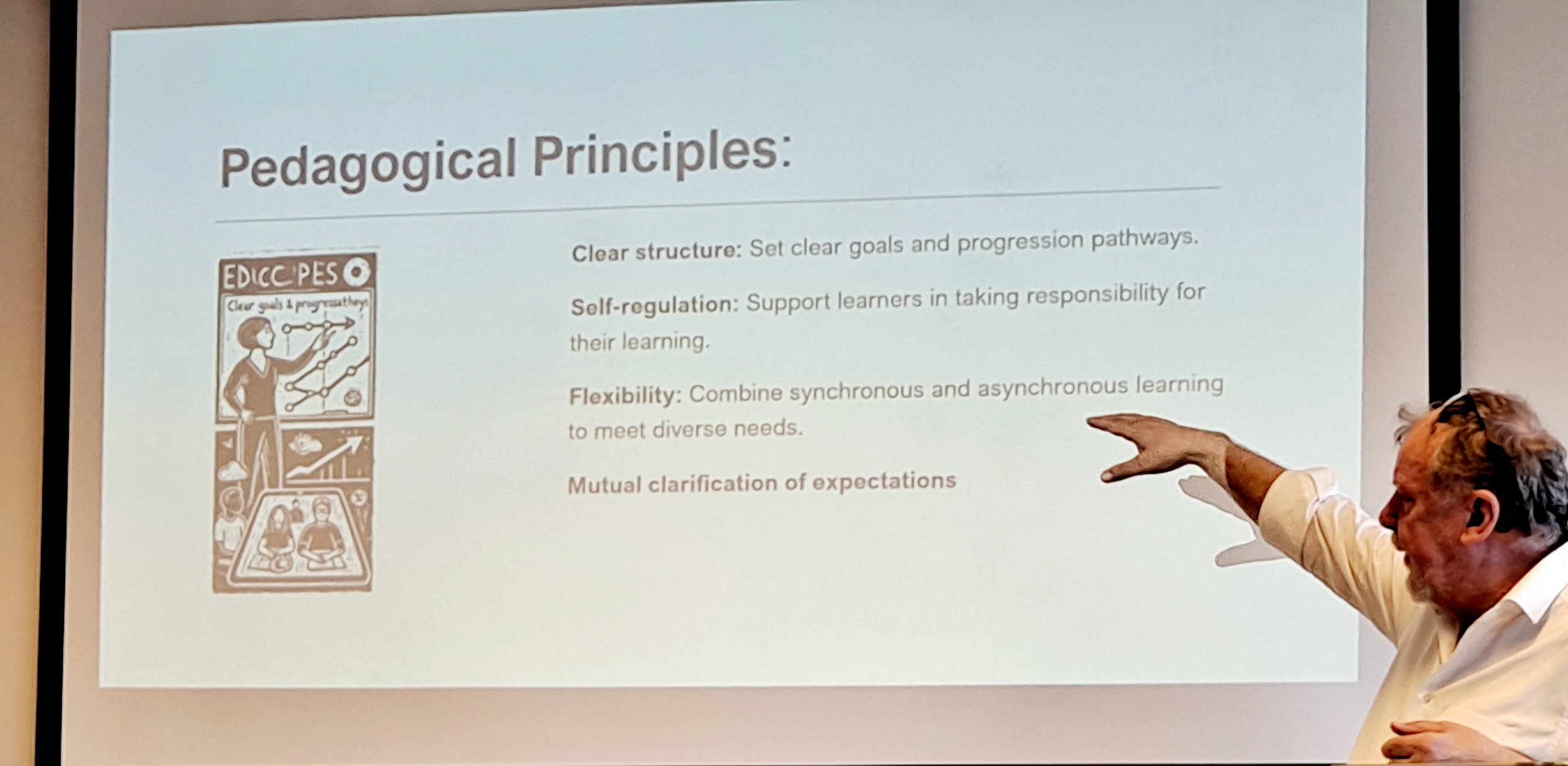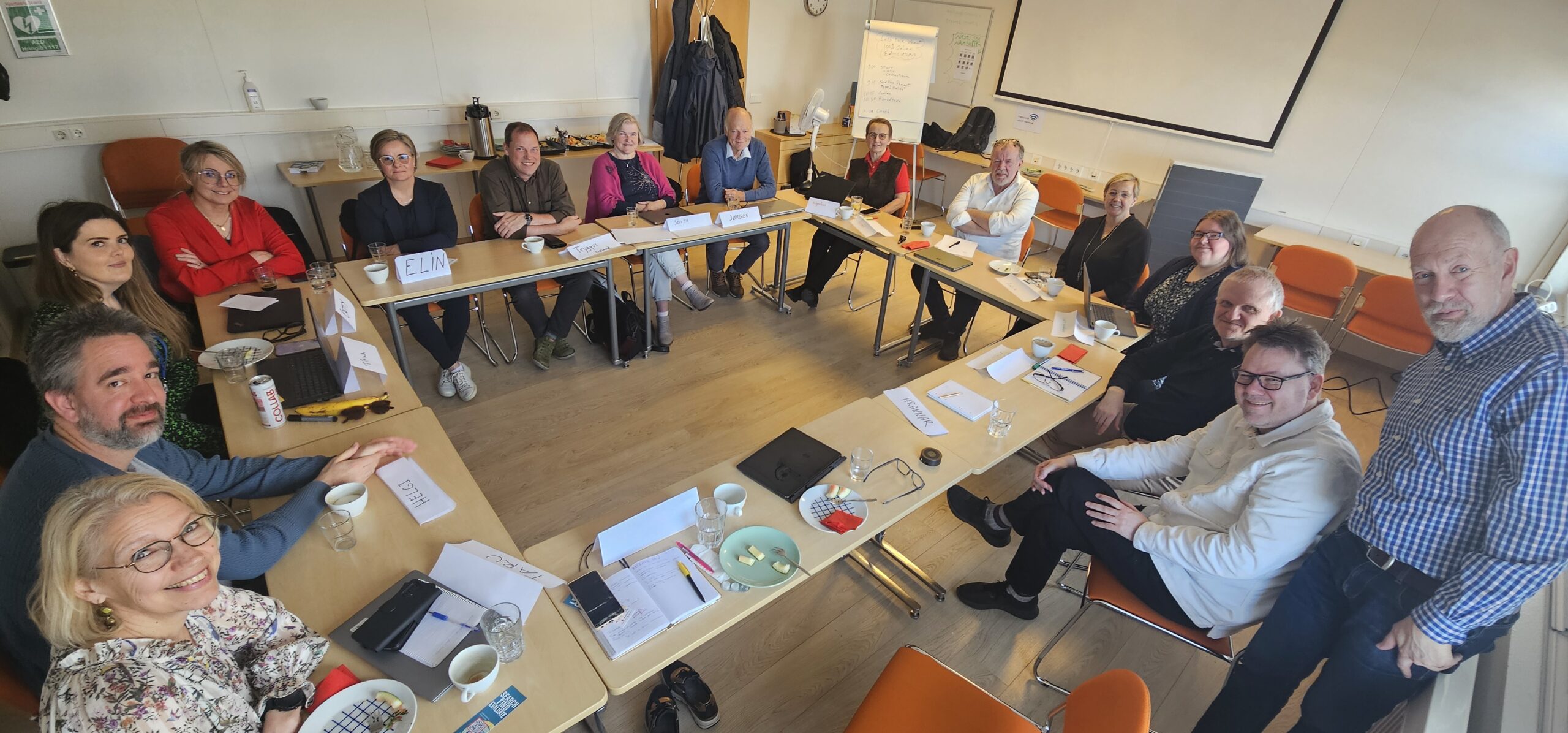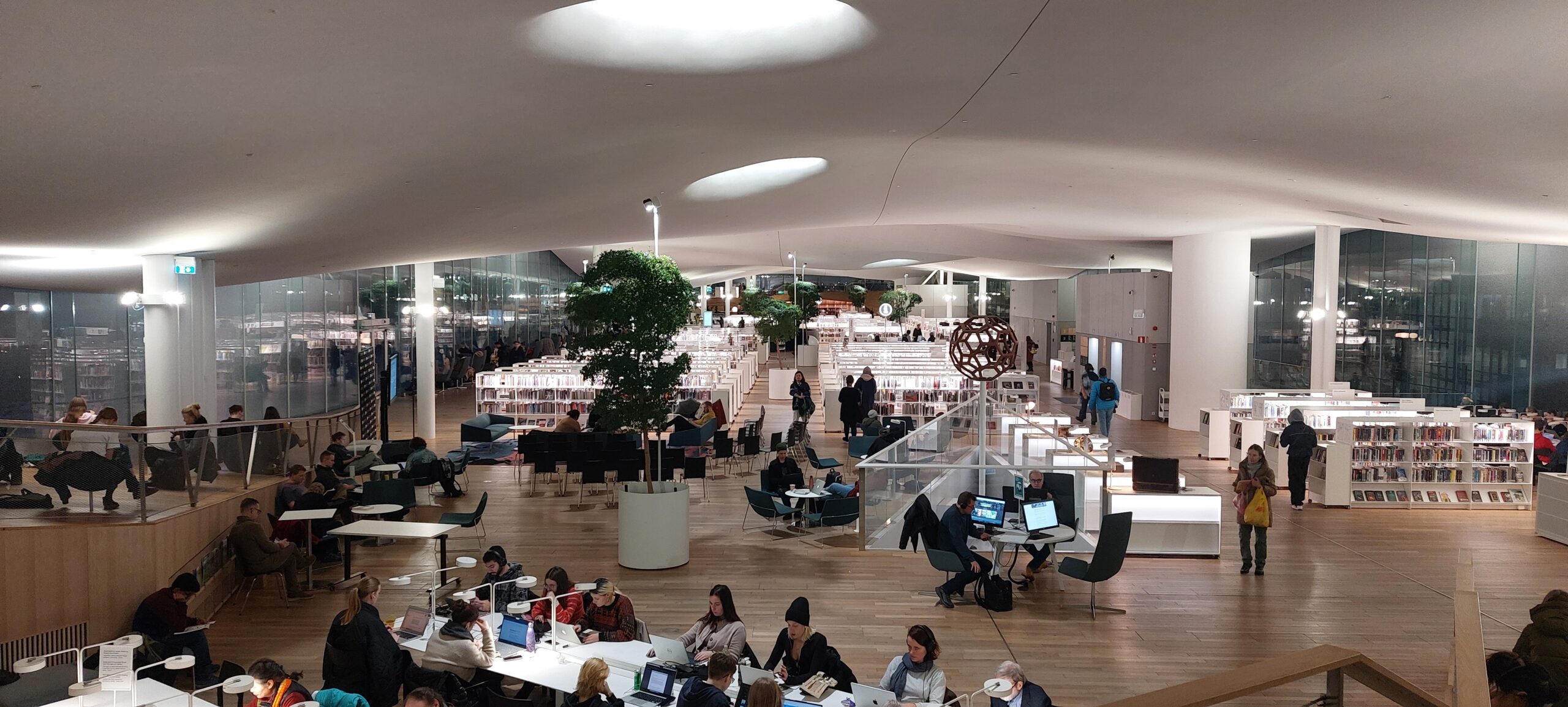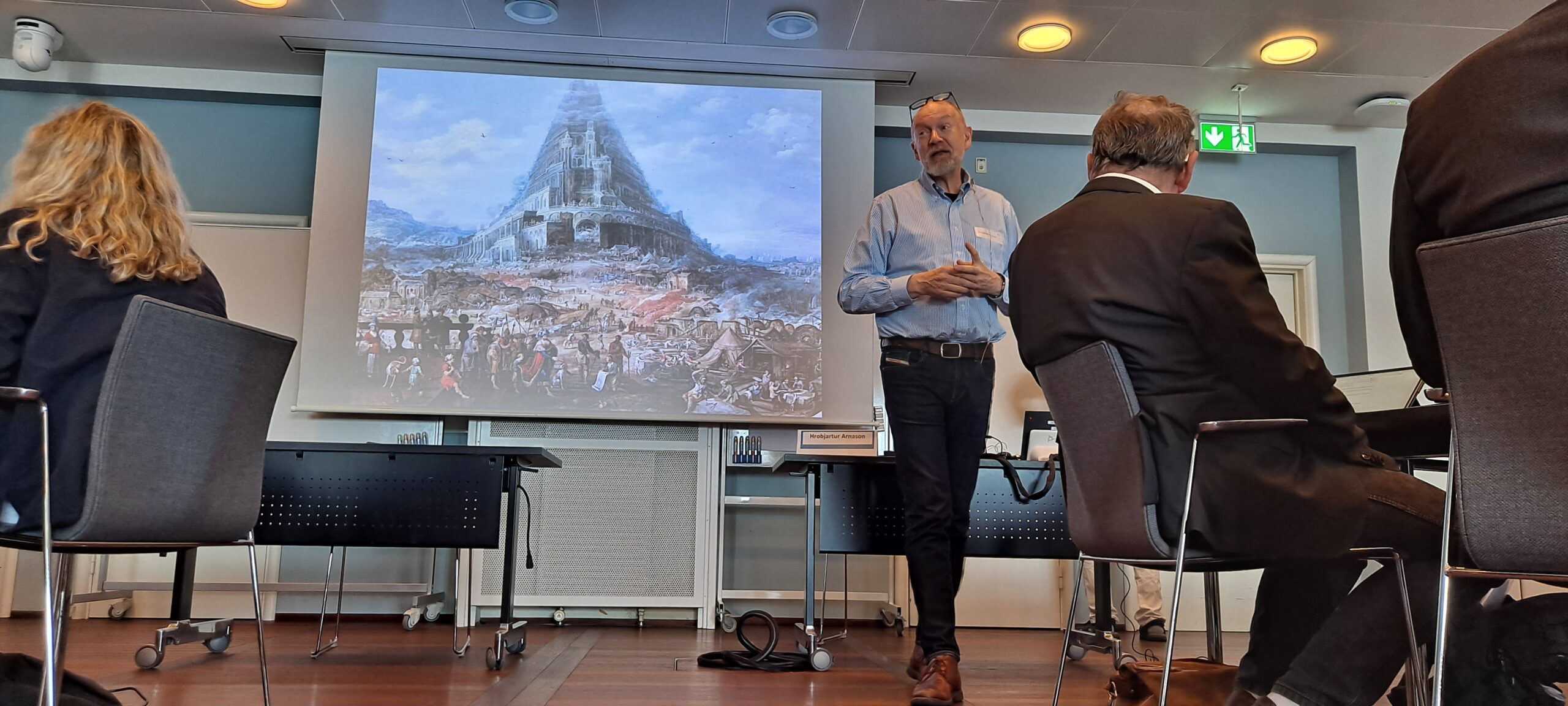The 100% Online symposia
Reykjavik – Helsinki – Copenhagen – Oslo
Back to front page
Online -the new normal?
The 4th Symposium, Reykjavik, April 31st 2025
With the handbook and report finished but for a few details, the final symposium in Reykjavik was arranged as a round table session with short presentations and longer discussions. The invited guests were educators, instructors and course designers from the Adult education centre, the University of iceland, the university library and also on-the-job-training.
The findings from the project was summed up very briefly. For the course designers and intructor, the most important pedagogcal principles could be summed up in one slide:
- Clear structure: Set clear goals and progression pathways.
- Self-regulation: Support learners in taking responsibility for their learning
- Flexibility: Combine sunchronous and asynchronous learning to meet diverse needs.
- Mutual clarification of expectations

One of the findings from the project is that there seems to be more similarities than differences between the Nordic countries when it comes to online course design. This made a good basis for the conversation and allowed for a wide range of topics to be discussed.
A philosophic approach
How innovative is 100% education really? Will we see a new MOOC-wave? And why do we call education in the physical classroom, where students often only see the back of eachothers’ heads «face-to-face teaching», as opposed to virtual classes which often truly are face-to-face?
These were some of the questions discussed in the round-table session. Also the use of artificial intelligence in education is a topic that everybody is occupied with at the moment. The participants were sure that it will disrupt education in some way or other, but how?

Hope for the best -prepare for the worst: online education as emergency preparedness
In the last session, we went a little offroad to view the magnificent but also terrible changes the last lava eruption made to the landscape outside of Grindavík. The Icelandic people are always prepared for what the nature brings, but also the other nordic countries are seeing more and more disruptions by nature. To be able to access learning and education online is also about being prepared for closed roads and closed schools.

Back to front page Back to the top
Sharing the learnings
The 3rd Symposium, Helsinki and Espoo, December 3rd-4th 2024
Presentations
On day one the project partners met with Kurkuli Online School, who presented both the school and a brief overview of the history of online education in Finland, but also a project on how they used their expertise on mobile and culture sensitive learning design to teach girls in Afghanistan.
The project also met up with the Finnish eLearning Center to network and share the latest news and questions.

Workshop with online teachers
Day two was a joint presentation-workshop with online teachers at Omnia, two of whom have been interviewed in our case studies.

The project partners presented what have been learnt in the project so far. A preliminary report is written (however still in Danish) and the findings were shared, followed by discussions on challenges, opportunities and good practice in online education.

Feedback session
As the project will result in a final online publication, the second part of the workshop was a aimed at getting feedback from the teachers on what structure, format and layout will be best suited to support them in their planning and execution of online teaching and learning.

Back to front page Back to the top
Fairy tales and the imagination of no limits
Nordic Conference, Copenhagen, May 30th 2024
The project had two sessions in the Nordic Conference «AI, Humans & Learning«; a presentation and a workshop.
Reaching for the sky…
In the presentation, «Digitization -Is the Sky the Limit?», Hróbjartur Árnason used the Tower of Babel to explore how far human learning can go with digitally supported learning opportunities. His five pillars of learning are:
- Learning environment (which can be the LMS in 100% online learning)
- Guidance (even with all the advanced learning technology we use, teachers are no less important)
- Curriculum (the content of the course)
- Fellow travellers (social learning -how can we learn together in online learning?)
- Dicipline (which is closely connected with the importance of structure often mentioned in the interviews)

Once upon a time…
In the workshop we tried out what we believe is an innovative new approach: Four cases from the project were rewritten as fairy tales, with the educator as a protagonist. The groups read their fairy tale and were given four questions for discussion and reflection:
- What kind of understanding arises here?
- What does the story tell you about learning?
- What does the story tell you about online learning?
And finally we asked the groups what they thought about this method.
Why did we do this? Believe it or not, we did it to estrange ourselves and the attendees. We who work in the field of online education are so used to read cases such as our own that we don’t se the forest for the trees. By reframing the stories, we wanted the attendees to discuss learning from a fresh point of view.

The fairy tales were interesting starting points for the discussion, but also very demanding. Participants experienced a closer relationship to the case because they had to decode and analyze the text. The mental schemas of the ancient fairy tale world and modern digital education created a cognitive dissonance that can spark learning when the participants are motivated, but this can also end up in frustration.
Back to front page Back to the top
A warm welcome to a cold city
First symposium, Oslo, January 5th 2024
In the start up Symposium Karense Foslien (Norwegian Teaching) and Susanne Koch (Lovisenberg Diakonale Høyskole), representing Norwegian cases, presented to the project team and guests. The presentation were followed by an informal round table discussion.

Niels Henrik Helms also tried out summarizing the presentations and discussions in drawing, as done in some larger conferences.


